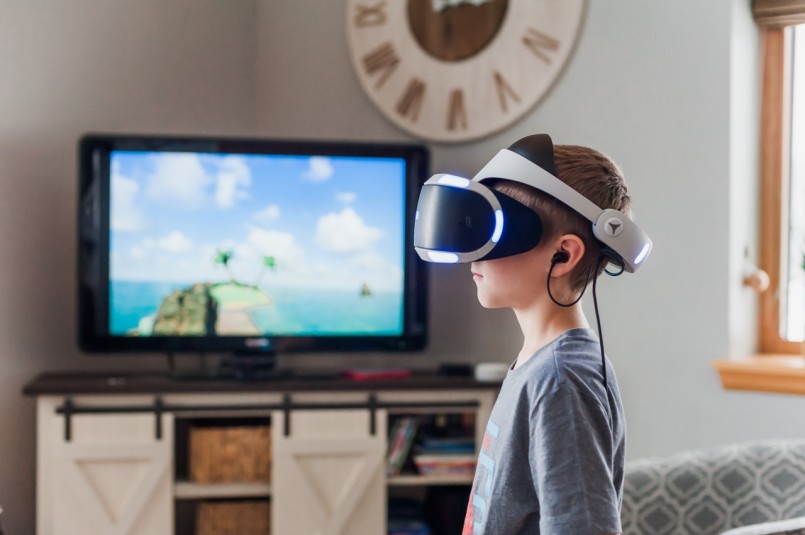
The whole world is talking about the benefits of getting unplugged. The process includes zero devices at specific periods, be it hours or days, and should make us more focused on face-to-face relationships and immediate surroundings.
However, let's face it - we live in a technology-driven world. So an important question arises when it comes to raising a child.
On the one hand, if you keep your child unplugged, how will they get used to the technology which is everywhere? Will they be able to adapt later on in life? On the other hand, doesn't it implicate many disadvantages to a child's development?
The key is not to become a limiter but a mentor to your children and their relationship with devices. Today, we'll share some useful advice on how to get the best of both worlds.
Don't Restrict Technology
Face the truth - technology is here to stay. Your children, depending on age, will need the skills in the future, or perhaps already, in schoolwork and social lives. Shielding them from technology will only make them incapable of using the tools of the modern world.
Be an Enabler
You should equip your children to use their machines as tools and to do it properly. So, provide them with devices and teach them proper usage.
Encourage Moderation
Many studies show the adverse effects of excessive screen time on kids. What you can do is monitor both the duration and the content of your children's exposure to technology.
Set parental controls and ensure that the time your children spend exposed to technology is limited and meaningful.
Set Age Restrictions
Some social media and more general websites come with minimum age requirements. Abide by these - they exist for a reason.
Some children might be mature enough to use them wisely, but not every child. It's better that you're non-discriminatory and set the same limit for all kids.
Get Educated and Educate
The content published online and accessible through technology is never-ending. A part of it can be fantastic for your children, while a lot is harmful.
To distinguish one from the other, you need to do your homework and get familiar with what's out there. By doing so, you are ensuring that your kids are getting the most of their screen time.
Apps for Kids
There are over 80,000 apps online with the 'educational' tag. Moreover, interactive games can be a blast for your toddler while also teaching them valuable skills at the same time.
The internet and media offer an endless pool of learning opportunities, from world knowledge to languages. Some also specialize in developing specific skills, such as classification and visual thinking.
To paraphrase the experts from Little Thinkers Center, the development of such skills leads to more efficient thinking of your child altogether.
The Importance Of Privacy
Children can be naive and unaware of the ways the content they share can be used for negative purposes. Teach them how to make use of privacy settings and warn them about sex offenders and predators.
Stay Cautious
Kids will be kids, and they'll make mistakes using media. You can turn these into lessons to learn, but keep an eye out for red flags. If they do appear, enlist professional help.
Limit Setting
Although technology impacts the way we relate to people, face-to-face conversations are still relevant and will continue to matter well into the future.
We can't tell for sure whether technology will destroy or enhance communication in the years to come. What we can do is make sure that we still have meaningful conversations with each other in the present.
Treat Media Normally
The best way to break the stigma around media is by treating it as you would all other environments in the life of your child. The same rules of parenting apply online and offline. You're the one to set limits and your children ought to respect them. Know what your kids are doing on the internet and who the friends they make there are.
Encourage Playtime
Especially with young children, offline, unstructured playtime does a lot to stimulate creativity. So, make the unplugged time a priority every day.
Be a Role Model
Practice what you preach - that is, be moderate and responsible in your media use. Children are sponges and excellent mimics. Plus, the less of your day you spend online, the more valuable time you'll have to spend with the kids.
The Bottom Line
Finally, remember that technology serves a purpose. It's supposed to solve problems and make our lives more efficient and comfortable. Only include it in your life and the lives of your children if it does so. Learn to be a good judge and make intelligent decisions, and it will be a tool in raising your children, not an obstacle.












